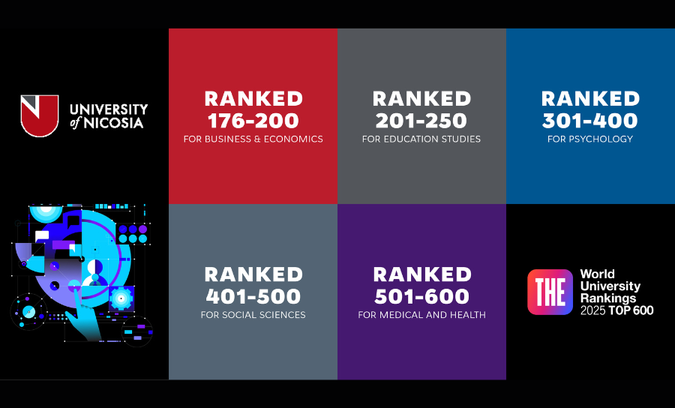Information
Aims
- Provide students with the necessary knowledge and skills to pursue graduate studies in Mathematics and other fields that require a strong Mathematical background.
- Underline the real-life applications of Mathematics and the important role it plays in other Sciences such as Physics, Engineering, Finance and the Social Sciences.
- Enable students to use Mathematical thinking and techniques to solve problems from other disciplines providing the necessary qualifications for careers in a variety of diverse fields.
- To provide students with the necessary knowledge and skills to teach Mathematics.
Objectives
- Provide students with a solid foundation in all Mathematical areas (modern and traditional), i.e. Algebra, Analysis, Geometry, Applied and Computational Mathematics, Probability and Statistics.
- Enhance critical, analytical and abstract thinking.
- Develop computational and problem solving skills including the capability to use modern technology effectively.
- Enable students to use Mathematical methods and thinking to solve mathematical problems in Physics, Engineering, Finance or Biology.
Career Prospects
On successful completion of the program graduates will be able to be employed in numerous areas of both the Public and Private sectors. It must be underlined here that teaching is not the only opportunity for employment. There are many jobs that require the design and use of Mathematical or Statistical models and the quantitative skills, analytic and critical thinking Mathematicians undoubtedly have are qualities in high demand. One must not forget that Mathematics is also used in Genetics, Epidemiology, the Social Sciences, Image Processing and Computer Science.
Potential employment opportunities include:
1. Banking, the Stock Market, Financial Institutions, Market Research and Polling Companies.
2. Secondary Education, whether this is public, private or tutoring.
3. The Central Bank of Cyprus, the Statistical Service, the Ministry of Finance and the Meteorological Service.
4. The Cyprus Institute of Neurology and Genetics, Social Science Research Centers and software development companies.
Access to Further Studies
Upon graduation, students may have direct access to further postgraduate (MSc, Ph.D.) studies in a vast array of scientific fields:
- Pure and Applied Mathematics
- Statistics
- Engineering and Applied Sciences
- Operational Research
- Computer Science
- Financial Μathematics and Actuarial Science
- Physics
Program
Semester 1
- Programming Principles I
- English Composition
- Mathematics Laboratory
- Foundations of Mathematics
- Calculus I
Semester 2
- Programming Principles II
- Mathematics with Computers
- Calculus II
- General Physics I
Semester 3
- Elementary Number Theory
- Calculus III
- Linear Algebra I
- General Physics II
Semester 4
- Accounting I
- Technical Writing and Research
- Probability and Statistics I
- Linear Algebra II
- Ordinary Differential Equations
Semester 5
- Probability and Statistics II
- Numerical Analysis I
- Differential Geometry I
- Introduction to Modern Algebra
Semester 6
- Linear Models I
- Real Analysis
- Complex Analysis
- Partial Differential Equations
Semester 7
- Numerical Analysis II
- Linear Models II
- Applied Mathematical Analysis
- Topology
Semester 8
- Functional Analysis
- Times Series Modeling and Forecasting
- Mathematical Modeling
- Numerical Solution of Differential Equations
News

UNIC Students Win Cyprus Final of …

University of Nicosia Ranks #1 in …

UNIC Health faculty recognized among world’s …







